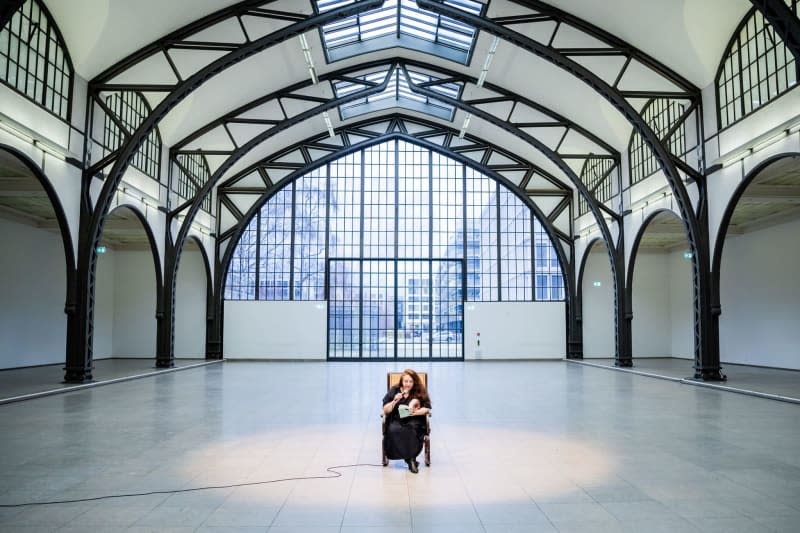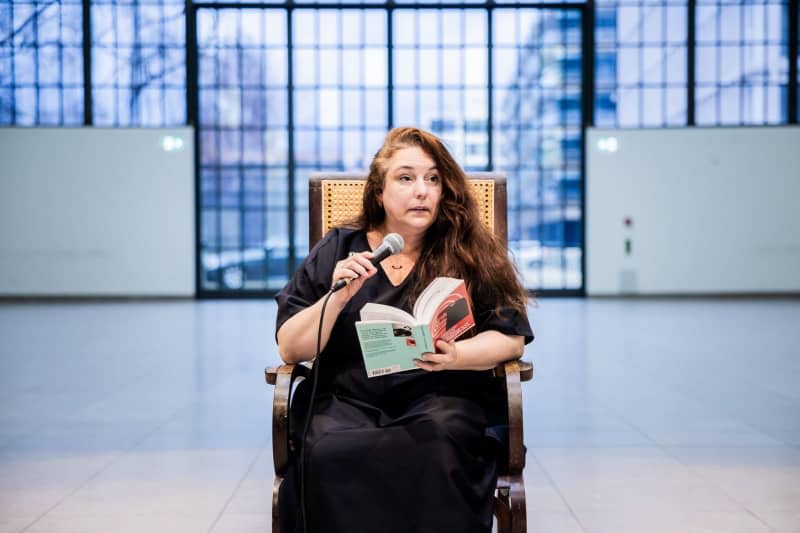Pro-Palestinian protesters disrupt reading of Arendt work in Berlin

A marathon reading and discussion at a Berlin contemporary art museum of "The Origins of Totalitarianism" - Hannah Arendt's exhaustive account of the rise of Nazism and Stalinism - ended early after disruptions by pro-Palestinian protesters.
German Culture Minister Claudia Roth condemned the "vile" protest, which she described as an anti-Semitic attack.
Sam Bardaouil and Till Fellrath, the co-directors of the Hamburger Bahnhof, said the the performance of "Where Your Ideas Become Civic Actions (100 Hours Reading 'The Origins of Totalitarianism')" by Cuban artist Tania Bruguera was disrupted twice on Saturday by a group of political activists using hate speech.
They said the activists protested first on Saturday afternoon and then came back later in the evening with a larger group of around 20 people. At the second protest an activist insulted a performance participant and once of the museum directors.
Under these circumstances, the open dialogue that was intended with the performance was no longer possible and the artist decided to end it early, the directors said.
"We respect and fully stand by the decision of the artist and refuse categorically any form of hate speech and violence," said Bardaouil and Fellrath on their Instagram channels, adding that safety concerns were also a factor.
The directors did not elaborate on what was said by the activists.
"Hatred, anti-Semitism, racism and such forms of violence are absolutely unacceptable and have no place in the arts or anywhere else," Roth said on Sunday.
"This vile anti-Semitism and racism was obviously aimed directly at a Jewish cultural worker, the Cuban artist and a director of the Hamburger Bahnhof."
Roth said she hoped there would be legal consequences for the perpetrators. According to police reports on Sunday, a complaint has been filed.
Arendt, a German Jew who fled Nazi Germany eventually for New York, wrote her analysis of the origins and development of National Socialism shortly after the end of the World War II and the liberation of Germany.
A few years later, she supplemented the work with aspects of Stalinism.
The 1,000-page "The Origins of Totalitarianism" was supposed to be read and discussed over the span of five days, from Wednesday to Sunday.
Passages were read by museum visitors and experts every half hour and then debates sometimes followed. The event is intended to tie in with the première in her Cuban homeland.
In 2015, the Cuban performance took place while she was under house arrest, forcing her to broadcast the reading to the outside world via loudspeakers.
The Cuban authorities reacted to the reading by drowning it out with jackhammers outside Bruguera's Havanna house, a press release from the museum noted. At the end of the reading, Bruguera was arrested for several hours by the Cuban authorities.


